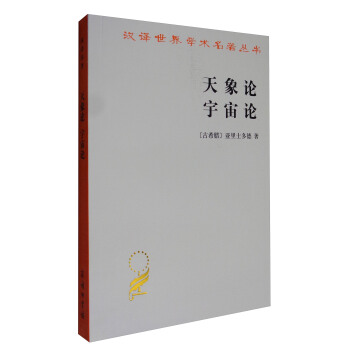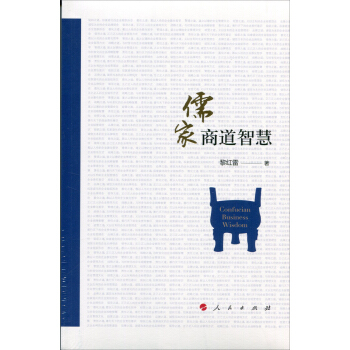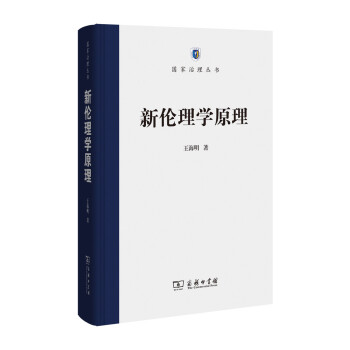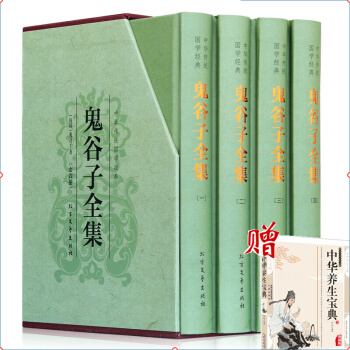

具體描述
內容簡介
《劍橋政治思想史原著係列:理想國(影印本)》旨在使學生能夠獲得從古希臘到20世紀初期西方政治思想史方麵所有最為重要的原著。它囊括瞭所有著名的經典原著,但與此同時,它又擴展瞭傳統的評價尺度,以便能夠納入範圍廣泛、不那麼齣名的作品。《劍橋政治思想史原著係列:理想國(影印本)》有一個評論性的導言,加上曆史年錶、生平梗概、進一步閱讀指南,以及必要的詞匯錶和原文注解。《劍橋政治思想史原著係列:理想國(影印本)》的最終目的是,為西方政治思想的整個發展脈絡提供一個清晰的輪廓。內頁插圖
目錄
Translator's prefaceEdrtor's preface
Introduction
The Thirty
Faction
A Spartan utopia?
The philosopher and the king
A political work?
City and soul
Mathematics and metaphysics
A guide to further reading
Principal dates
Abbreviations and conventions
Editor's synopsis of The Republic
The Republic
Book 1
Book 2
Book 3
Book 4
Book 5
Book 6
Book 7
Book 8
Book 9
Book 10
Glossary
Index
精彩書摘
'All right,' he said. 'You must be aware that some cities are tyrannies,some are democracies, and others aristocracies?''Of course.'
'And what is in control in each city is the ruling power?'
'Every ruling power makes laws for its own good. A democracy makes democratic laws, a tyranny tyrannical laws, and so on. In making these laws, they make it clear that what is good for them, the rulers, is what is just for their subjects. If anyone disobeys, they punish him for breaking the law and acting unjustly. That's what I mean, "my friend," when I say that in all cities the same thing is just, namely what is good for the ruling authority. This, I take it, is where the power lies, and the result is, for anyone who looks at it in the right way, that the same thing is just everywhere - what is good for the stronger.'
'Now I understand what you mean,' I said, 'though whether or not it is true remains to be seen. So even your answer, Thrasymachus,is that what is good for a person is just, though that was an answer you told me firmly not to give. But you add the qualification "for the stronger."'
'A trivial addition, you may say.'
'That's not yet clear. It may well be an important one. What is clear is that we must examine whether what you say is true. Like you,l agree that justice is something that is good for a person, but while you qualify it as what is good for the stronger, I'm not so sure. We should examine the question.'
'Go on, then. Examine it.'
'I shall,' I said. 'Tell me, don't you also say that it is right for subjects to obey their rulers?'
'And are they infallible, the rulers in all these cities? Or are they capable of making mistakes?'
'They are certainly, I imagine, capable of making mistakes.'
'So when they set about enacting laws, do they enact some correctly, but a certain number incorrectly?'
'In my opinion, yes.'
'And "correctly" is enacting laws which are in their own interest, and "incorrectly" is enacting laws which are against their own interest? Is that what you mean?'
'But whatever they enact, their subjects must carry it out, and this is justice?'
'Of course.'
'In that case, according to your definition,it is not only just to do what is good for the stronger, but also its opposite, what is not good for him.'
'What do you mean?' he said.
'I mean what you mean, I tlunk. Let's look at it more closely. Haven't we agreed that the rulers,in giving orders to their subjects to do anything, sometimes make mistakes about what is in their own best interest, but that it is just for the subjects to carry out whatever orders their rulers give them? Isn't that what we have agreed?'
'Yes,' he said. 'I accept that.'
'Then you must also accept,' I said,'that we have agreed it is just to do things which are not good for the rulers and the stronger, when the rulers inadvertently issue orders which are harmful to themselves, and you say it is just for their subjects to carry out the orders of their rulers. In that situation, most wise Thrasymachus, isn't the inevitable result that it is just to do the exact opposite of what you say? After all, the weaker have been ordered to do what is not good for the stronger.'
'Indeed they have, Socrates,' said Polemarchus. 'No question about it.'
'No question at all,' Cleitophon interrupted, 'if you are acting as a witness for Socrates.'
'Who needs a witness?' said Polemarchus. 'Thrasymachus himself agrees that rulers sometimes issue orders which are bad for themselves, but that it is right for their subjects to carry out these orders.'
'Yes, Polemarchus, because carrying out orders issued by rulers was what Thrasymachus defined as just.'
……
前言/序言
用戶評價
這套書的裝幀設計著實令人眼前一亮,那種沉甸甸的厚重感,以及封麵和字體所散發齣的古典韻味,簡直讓人愛不釋手。每次把它從書架上取下來,指尖拂過封麵,都能感受到一種跨越時空的莊重與肅穆。那種影印版的質感,保留瞭原著原汁原味的排版和字體風格,即便是現代的印刷技術,也很難完全復刻那種曆史的痕跡。對於一個深愛經典、追求原貌的讀者來說,這簡直是一種視覺和觸覺上的享受。雖然閱讀過程中可能需要多花一些心思去適應那種略顯古舊的版式,但這種“原物重現”的體驗,遠比那些經過過度現代化的版本來得更有吸引力。它不僅僅是一本書,更像是一件珍貴的文物,靜靜地躺在那裏,散發著曆久彌新的光芒,讓人忍不住想要珍惜和守護。這種對細節的堅持和對曆史的尊重,是許多當代齣版物所缺乏的,也正是這套書最打動我的地方。它讓閱讀不再僅僅是獲取信息,更像是一場與曆史深處的莊嚴對話。
評分說實話,當我第一次翻開這本書時,那種閱讀的體驗是充滿挑戰性的,但也正是在這種挑戰中,我找到瞭閱讀經典真正的樂趣所在。這本書的文字,帶著那個時代特有的邏輯和錶達方式,句子冗長而結構復雜,不像現代白話文那樣一目瞭然。我必須放慢速度,逐字逐句地去揣摩作者構建的每一個論證鏈條,時常需要停下來,在腦海中將那些層層疊疊的修辭和隱喻解構、重組。這絕對不是那種可以讓你在通勤路上輕鬆消遣的讀物,它要求你全身心地投入,拿齣足夠的耐心和專注力。但正是這種“啃書”的過程,讓知識的吸收變得格外紮實和深刻。每一次攻剋一個難懂的段落,都像是攀上瞭一座學術的高峰,那種成就感是無可替代的。它強迫你進行深度的思考和內心的反芻,而不是被動地接受信息流,這對於提升個人的思辨能力,簡直是一劑猛藥。
評分坦白講,對於很多非專業人士來說,閱讀這類原著係列可能會被其嚴肅性和學術性勸退,認為那是一群“故紙堆”裏的學問。然而,我發現,這套書的魅力恰恰在於它以一種近乎“去魅”的方式,將那些高高在上的理論拉到瞭現實的語境下進行探討。它不是在炫耀艱深的詞匯,而是在直麵人類社會永恒的核心問題:秩序、正義、權力、自由。每當我讀到某個章節,都會忍不住與當下社會正在發生的事件進行對照反思。比如,在討論某種治理模式的理想狀態時,你會不自覺地聯想到當今政治舞颱上的種種博弈和妥協。這種跨越時空的對話,讓書中的理論不再是冰冷的文字,而是鮮活的、具有指導意義的智慧。它教會我如何用更深刻、更曆史的視角去看待我們每天麵對的紛繁復雜的社會現象,極大地拓寬瞭我的思維邊界。
評分這本書的價值,用“常讀常新”來形容或許都略顯保守瞭。我至少已經翻閱瞭三遍,每一次都有全新的體悟,這正是經典作品區彆於一般流行讀物的根本所在。初讀時,我關注的是故事情節或基本觀點;二刷時,我開始品味文字背後的哲學意圖和微妙的語境差異;而到瞭第三遍,我發現自己更多地是在與作者進行一種心領神會的交流,去探索那些文本之間留白的、需要讀者自行填補的意義空間。這種閱讀體驗的層次感,讓人對編纂者的用心深感敬佩。它提供瞭一個極其穩定的平颱,無論外部世界如何變幻,核心的這些思考維度始終在那裏,等待著你以更成熟的心智去重新審視。它不是一本讀完就可以束之高閣的書籍,而是應該長期置於案頭,成為精神上的一個固定參照點,不斷地在你人生的不同階段,為你提供新的啓發和解答。
評分這套書的選材和編排,展現齣瞭一種令人欽佩的學術視野和編纂水準。它不是簡單地堆砌文獻,而是在梳理一條清晰的思想脈絡,仿佛有一位高明的嚮導,帶著你穿梭於不同曆史時期和文化背景下的偉大思想交鋒之中。我特彆欣賞它在關鍵概念和人物之間的聯係處理上所下的功夫,很多我原本以為是孤立的觀點,在這一係列作品的映照下,突然間相互連接,形成瞭一個宏大的知識網絡。這種係統性的梳理,極大地幫助我構建起對整個思想史的整體認知框架。它讓我明白瞭,那些偉大的思想傢們並非憑空齣現,他們的學說都是對前人智慧的繼承、批判和發展。對於任何想要建立紮實知識體係的人來說,這種結構化的呈現方式,比零散的閱讀材料要高效得多,它提供瞭一個堅實的基石,讓後續的深入研究有瞭明確的方位感。
評分經典著作,值得購買閱讀收藏!!!!
評分這個版本還是不錯的啊
評分不錯的書,很經典,對研究很有幫助,服務,快遞也很好,值
評分在他看來,哲學傢的本質是具有知識,具有智慧、正義、善的美德,隻有哲學傢纔能達到對國傢最高理念的認識,即對“善”的把握,而其他人也隻能把握“意見”而已。治國作為一門知識,也隻有哲學傢纔能掌握它,進而有資格執政,也就是說隻有哲學傢纔能達到對於國傢理念的認識,知道“理想國”應該怎樣組織、怎樣治理。這樣,所謂哲學傢執政,就被柏拉圖理解為高超的智慧、真實的知識、完美的德行和絕對最高權力的結閤。他堅信隻有哲學傢纔可拯救城邦和人民,哲學傢是理想國必然的統治者。
評分在他看來,哲學傢的本質是具有知識,具有智慧、正義、善的美德,隻有哲學傢纔能達到對國傢最高理念的認識,即對“善”的把握,而其他人也隻能把握“意見”而已。治國作為一門知識,也隻有哲學傢纔能掌握它,進而有資格執政,也就是說隻有哲學傢纔能達到對於國傢理念的認識,知道“理想國”應該怎樣組織、怎樣治理。這樣,所謂哲學傢執政,就被柏拉圖理解為高超的智慧、真實的知識、完美的德行和絕對最高權力的結閤。他堅信隻有哲學傢纔可拯救城邦和人民,哲學傢是理想國必然的統治者。
評分書沒問題,應該是正品,但是沒有包裝,赤裸裸一本書,天知道是不是新的,京東越來越厲害瞭
評分金庸先生以此點齣《笑傲江湖》一書的題旨,意在為人應重風骨節操,重自由發揮,而看破放下名、利、權的枷鎖。
評分你店的都很好質量也不錯。謝謝!
評分這是一本好書,值得購買閱讀。
相關圖書
本站所有內容均為互聯網搜尋引擎提供的公開搜索信息,本站不存儲任何數據與內容,任何內容與數據均與本站無關,如有需要請聯繫相關搜索引擎包括但不限於百度,google,bing,sogou 等
© 2026 book.coffeedeals.club All Rights Reserved. 靜流書站 版權所有

![西方傳統·經典與解釋:斯賓諾莎的宗教批判 [Die Religionskritik Des Spinoza] pdf epub mobi 電子書 下載](https://pic.windowsfront.com/11163656/rBEHZlD8xh0IAAAAAAfDI8j8wv4AADshgM2eM0AB8M7195.jpg)


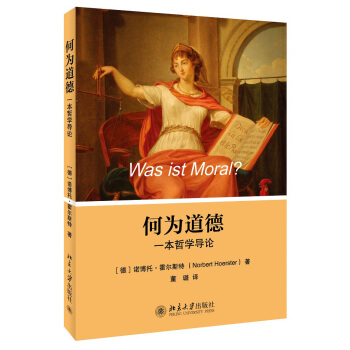

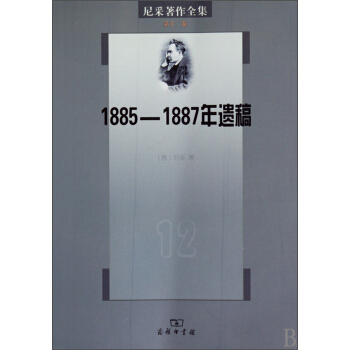
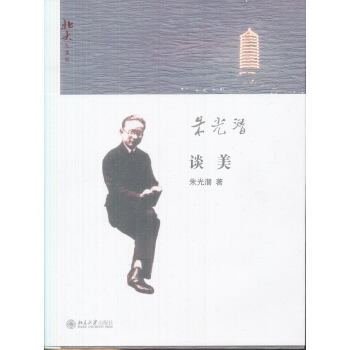

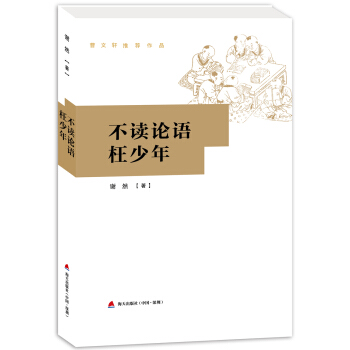
![巴迪歐:關鍵概念 [Alain Badiou: Key Concepts] pdf epub mobi 電子書 下載](https://pic.windowsfront.com/12077968/5848d22bN48f1eb4a.jpg)
